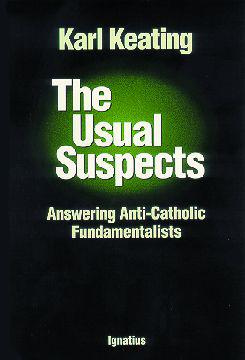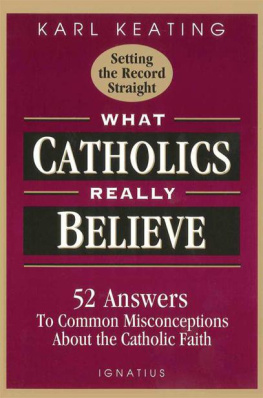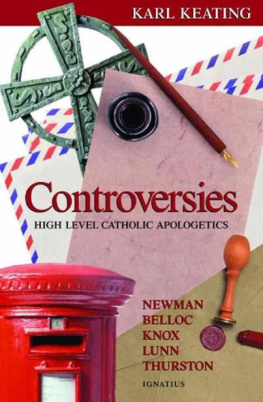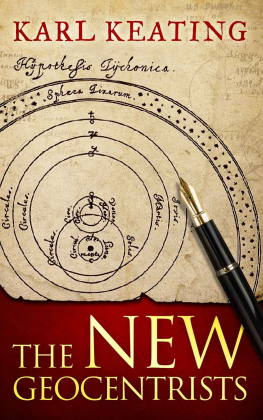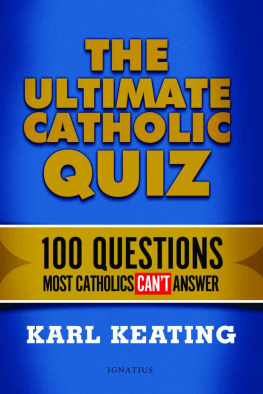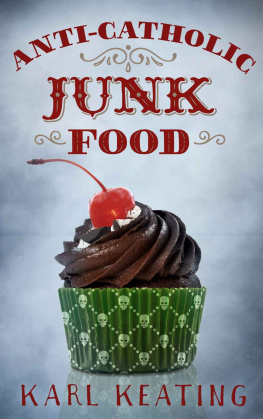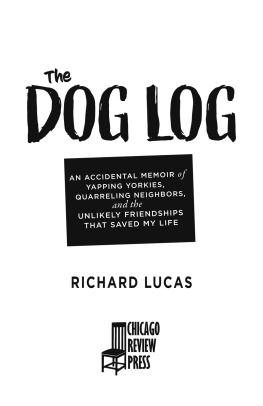Karl Keating - Booked for Life: The Bibliographic Memoir of an Accidental Apologist
Here you can read online Karl Keating - Booked for Life: The Bibliographic Memoir of an Accidental Apologist full text of the book (entire story) in english for free. Download pdf and epub, get meaning, cover and reviews about this ebook. year: 2017, publisher: Catholic Answers Press, genre: Religion. Description of the work, (preface) as well as reviews are available. Best literature library LitArk.com created for fans of good reading and offers a wide selection of genres:
Romance novel
Science fiction
Adventure
Detective
Science
History
Home and family
Prose
Art
Politics
Computer
Non-fiction
Religion
Business
Children
Humor
Choose a favorite category and find really read worthwhile books. Enjoy immersion in the world of imagination, feel the emotions of the characters or learn something new for yourself, make an fascinating discovery.

- Book:Booked for Life: The Bibliographic Memoir of an Accidental Apologist
- Author:
- Publisher:Catholic Answers Press
- Genre:
- Year:2017
- Rating:4 / 5
- Favourites:Add to favourites
- Your mark:
- 80
- 1
- 2
- 3
- 4
- 5
Booked for Life: The Bibliographic Memoir of an Accidental Apologist: summary, description and annotation
We offer to read an annotation, description, summary or preface (depends on what the author of the book "Booked for Life: The Bibliographic Memoir of an Accidental Apologist" wrote himself). If you haven't found the necessary information about the book — write in the comments, we will try to find it.
Booked for Life: The Bibliographic Memoir of an Accidental Apologist — read online for free the complete book (whole text) full work
Below is the text of the book, divided by pages. System saving the place of the last page read, allows you to conveniently read the book "Booked for Life: The Bibliographic Memoir of an Accidental Apologist" online for free, without having to search again every time where you left off. Put a bookmark, and you can go to the page where you finished reading at any time.
Font size:
Interval:
Bookmark:
Booked for Life
The Bibliographic Memoir of an Accidental Apologist
KARL KEATING
Booked for Life
The Bibliographic Memoir of an Accidental Apologist

2017 Karl Keating
All rights reserved. Except for quotations, no part of this book may be reproduced or transmitted in any form or by any means, electronic or mechanical, including photocopying, recording, uploading to the Internet, or by any information storage and retrieval system, without written permission from the publisher.
Published by Catholic Answers, Inc.
2020 Gillespie Way
El Cajon, California 92020
1-888-291-8000 orders
619-387-0042 fax
catholic.com
Printed in the United States of America
Cover design by www.ebooklaunch.com
Interior design by Sherry Russell, Russell Graphic Design
978-1-68357-059-2 hardcover
978-1-68357-060-8 paperback
978-1-68357-061-5 Kindle
978-1-68357-062-2 ePub
Table of Contents

I was twelve when my maternal grandmother came to visit, the second-longest trip of her life. (The longest was when she and my grandfather left the old country and settled in Chicago in 1908.) We moved to Southern California when I was six, so my childhood memories of her are few, but I have a photograph from her only visit to us. She sits in an overstuffed chair in one corner of the living room. The curtain is partly drawn, the room shadowed. Arms on wooden armrests, Grandma looks worn from a hard life raising eight children on the wages of a husband whose early working years were spent at a slaughterhouse. Two years after her visit she went into a hospital for the last time. When my mother returned from her good-bye trip, she said Grandma hadnt died of anything in particular but weariness and widowhood. From her bed she had said she was ready to join Grandpa, perhaps echoing John XXIII, who had said in his final days, My bags are packed, and Im ready to go.
When she visited, Grandma was given my bedroom. I was relegated to a cot in my parents room. I remember lying there, the suns warmth coming through diaphanous curtains. I delighted in the book I read, The Borrowers by Mary Norton. It had been published a decade before and was about tiny people who lived beneath the floorboards of a British house. They furnished their lodgings by borrowing things: a thimble for a table, a pocket watch for a wall clock, pins and needles for all sorts of uses. I cant recollect now what delighted me about the book. Perhaps it was the Britishisms more than the story itself. F. Scott Fitzgerald had said the rich are different from you and me. The same might be said about American readers and English writers. I appreciated and liked the differentness from early on. That may have had a part to play in my choosing the five books that are the chief objects of discussion in this book. Their authors happen to have been Englishexcept for Frank Sheed, who was born in Australia but did his chief apologetical work in England, so in these pages he will be considered an honorary Englishman.
At one time I thought of pursuing a degree program focused on John Henry Newman, one of the five, but never did. In anticipation of it I collected nearly all of his writings and many about him. Later I did some work toward a program focused on another English author whose complete works I have, Samuel Johnson. I have two large bookcases devoted to him, his writings, and his era. My other complete or almost-complete collections are of the works of Ronald Knox, Frank Sheed, and Arnold Lunn. So, all Englishmen (actual or honorary), all masters of the English language, all dedicated Christians. This emphasis on English writers came not in my adolescence but later, but perhaps an early impetus was the pleasure I took in the very English way that The Borrowers was written.
When I was a few years beyond reading that book I discovered that I excelled at mathematics. Robert A. Millikan High School had a math club. The members participated in tournaments held throughout Southern California, competing against as many as a hundred other schools at a time. A team consisted of five students, each focusing on a particular area of math or on a particular contest activity. I was comfortable with filling any slot except for one: I had an aversion to the chalk talk because the contestant had to make a presentation, in front of a panel of judges, on some abstruse mathematical topic. I was too shy to stand before such a panel. I chose one of the slots where all I had to do was to work out answers while seated at a desk. It was like taking a test in class.
Years later, as a Catholic apologist, I discovered I was comfortable speaking before large audiences, the larger the better. Small audiences proved awkward for me. I could speak before 2,000 people without anxiety but seemed to lose my way when speaking before twenty. Comfort returned when I spoke to just one or two at a time. Where others found a sweet spot between the intimacy of too few and the giantism of too many, I found a sour spot.
Our math club met under the tutelage of Helen Carter, a soon-to-retire teacher who took me under her wing. Years later, when I would drive up to Long Beach to visit my parents, sometimes Id pay Mrs. Carter a visit. She lived with her sister in an older but handsome part of town. By this time I was engaged in apologetics, and we sometimes spoke about religion. She was Lutheran and seemed to have been brought up in a variant that inculcated a mild animus toward the Catholic Church. I was pleased to discover that she was pleased to discover, through our talks, that much of what she had been told about Catholics and their faith just wasnt so.
One of my recollections of her, before her retirement from teaching, was of her picking me up for a math tournament. I waited a block from home, at an easy-to-locate intersection. I thumbed through note cards, trying to memorize a few extra mathematical obscurities, thinking they might come in handy. One of them did. That day taught me the value of cramming. A contest question asked for the sum of a wide swath of integers, such as all the integers from 101 through 1001. On a note card I had jotted down the formula that allowed me to produce the answer within seconds. That day I won my section of the tournament, and our team won first prize overall. I was convinced that my street-corner cramming had made the difference, and it probably had, so closely matched were contestants otherwise. Cramming may not be an effective way to impart lifelong knowledge, but I discovered it works in tournaments.
That first year of high school I was at my apex. Our team participated in many tournaments, and I almost always finished at the top of my section, guaranteeing success to our team. I had grounds to imagine that I was the top tenth-grade math student in the whole of Southern California, and I likely was, but that year marked the end of my intellectual ascendancy, in math and everything else. Since then it has been a gradual decline to undistinguishedness.
I still have the James and James Mathematics Dictionary , which I read the way other people read cookbooks. It was a prize for winning an early tournament, and studying it allowed me to win subsequent
tournaments. But that was half a century ago. When I open its pages now everything is in a language foreign to me. Although I may have lost the meaning of the text, I have not forgotten the joy of minutiae. What once prompted me to learn arcane mathematical formulas later prompted me to learn equally arcane theological formulasprobably not a result anticipated by James and James.
Font size:
Interval:
Bookmark:
Similar books «Booked for Life: The Bibliographic Memoir of an Accidental Apologist»
Look at similar books to Booked for Life: The Bibliographic Memoir of an Accidental Apologist. We have selected literature similar in name and meaning in the hope of providing readers with more options to find new, interesting, not yet read works.
Discussion, reviews of the book Booked for Life: The Bibliographic Memoir of an Accidental Apologist and just readers' own opinions. Leave your comments, write what you think about the work, its meaning or the main characters. Specify what exactly you liked and what you didn't like, and why you think so.

